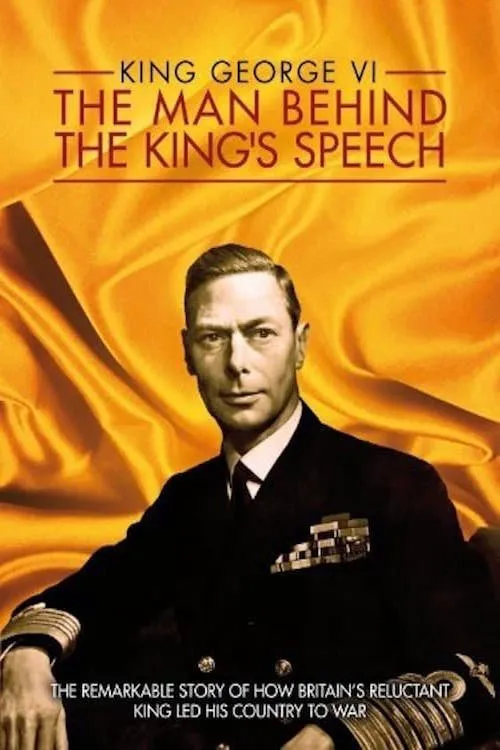King George VI: The Man Behind the King's Speech

Plot
King George VI, the unassuming and introverted monarch, faced an extraordinary challenge upon ascending to the British throne in 1936. As the second son of King George V, George, affectionately known as Bertie, had never expected to become king. However, fate had other plans when his older brother, Edward VIII, shocked the nation by announcing his intention to marry Wallis Simpson, an American divorcee. Bertie's life had always been influenced by his brother, with whom he had been close despite their differing personalities. Edward's charismatic nature and sense of self-empowerment had long overshadowed Bertie's more reserved and timid demeanor. Edward's decision to abdicate the throne to marry Wallis sparked a constitutional crisis, forcing Bertie to confront his own inadequacies as he took on the heavy responsibility of leading the country. Bertie's struggles with his speech impediment, known as a stammer, were a significant source of anxiety for him. This condition, which had always made public speaking difficult, now seemed insurmountable as he prepared to address his nation in times of war. His relationship with his wife, Elizabeth, was crucial in helping him overcome these challenges. A kind and nurturing individual, Elizabeth encouraged Bertie to seek help from a speech therapist, Lionel Logue. Logue, an Australian-born actor turned speech therapist, was initially met with skepticism by the royal family. However, Bertie and Logue eventually formed a strong bond, built on mutual trust and respect. Through a combination of unconventional methods, including exercises, relaxation techniques, and acting skills, Logue helped Bertie manage his stammer. The therapy sessions not only improved Bertie's public speaking but also deepened his understanding of himself and his role as king. As the threat of war loomed over Europe, Bertie, now more confident, began to assume a more prominent role in representing the British nation. He traveled extensively across the country, visiting troops and factories, and delivering speeches to rally support for the war effort. These events, once unbearable for Bertie, now became opportunities for him to demonstrate courage and resilience. Bertie's leadership during World War II was a defining moment in British history. His speeches, though still stammering, conveyed a sense of gravity, determination, and hope. His message of resolve and resistance resonated with the British people, who had grown to admire their unassuming monarch. Through his struggles and triumphs, Bertie proved himself an inspiration, not despite his flaws, but because of them. As the war effort gained momentum, Bertie's relationship with Logue continued to flourish. Logue's influence extended beyond speech therapy, helping Bertie develop a more empathetic understanding of his subjects. This newfound empathy enabled Bertie to connect with ordinary people, who were facing unprecedented hardship and sacrifice. One of Bertie's most iconic speeches, the "We shall go on to the end," address delivered in May 1940, encapsulated the resilience and determination of the British nation. Although still stammering, Bertie's words conveyed a sense of purpose and defiance, which became a beacon of hope for a nation under siege. Throughout the war, Bertie's personal growth was remarkable. He had transformed from an introverted and self-doubting monarch to a symbol of national pride and resilience. His willingness to confront his own shortcomings and vulnerabilities made him a more relatable and compassionate leader, who deeply understood the struggles of his people. The film highlights the incredible relationship between Bertie and Logue, a bond that transcended the boundaries of therapy and friendship. Logue's unconventional methods and unwavering support helped Bertie overcome his speech impediment, but more importantly, they helped him discover his own potential as a leader. In the end, King George VI emerged as a remarkable individual, who, against all odds, had overcome his limitations to lead his nation through its darkest hour. His story serves as a testament to the transformative power of courage, resilience, and determination. By embracing his flaws and learning to channel them into strength, Bertie became an inspiration for a nation, who would forever remember his remarkable journey from introverted monarch to unyielding leader.
Reviews
Recommendations


